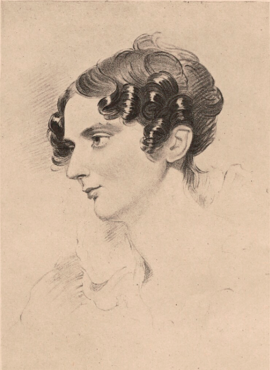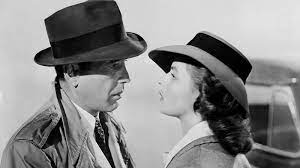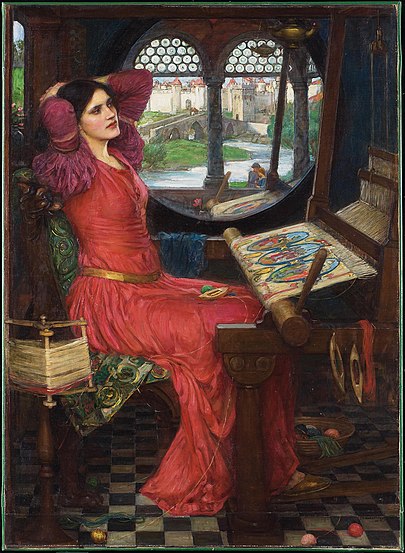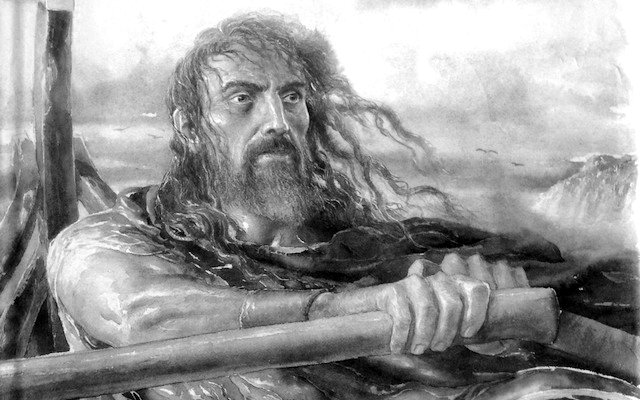I grew up in an environment of books. Not only was my father a writer and editor, but he also owned a bookstore and a publishing company. Sometimes after school I would walk over to my Dad’s bookstore, four blocks away, where I loved spending time in the children’s section. The children’s section had a couch, and I remember lying on the couch spending hours reading Anne of Green Gables and other books about interesting quirky people or animals. Sometimes I became so engrossed in the stories that they started to seem more real to me than the outside world. I didn’t have a lot of friends but the characters in books became my friends, and often the imaginary worlds started to seem more real to me than the actual world.
My mother also loved books. She homeschooled me and my brothers and was always intentional to devote a large part of each day after lunch to reading aloud to us. I never thought of reading as “schoolwork,”– it was just something we did for joy.
But during my teenage years, my approach to books changed. I started to view books as things to be leveraged for their usefulness. At some point, I wanted to be literary, and so I started reading books that I thought an educated person would read. I became fixated on having to finish every book, even if I wasn’t enjoying the book, just so I could say I had read that title. Add to this the fact that I was a very slow reader, and the result was frustration. I began beating up on myself that I couldn’t read faster. I felt burdened about how many books there were to read, and how long it would take me to get through all the books that an educated person should know about. Reading became, not a joy, but a chore.
Because I always had an interest in the Big Questions, when I was fifteen my father recommended I read C.S. Lewis’s Mere Christianity. That opened up a new genre world of books for me, and after Mere Christianity I moved onto other works of Christian apologetics and philosophy on the shelves of my father’s bookstore. But again, I approached books for their usefulness, this time because I hoped to get all my questions answered, to figure out the world, and to try to shore up my security in the Christian faith. In short, I saw books as things to be operationalized.
There is certainly nothing wrong with reading books for their usefulness. I am who I am today because of the books I read as a teenager. But I lost some of the early joy I had in reading as an end in itself rather than a means. I suspect many can relate to my early tendency to approach reading as a “useful” activity rather than a form of leisure. In the contemporary world, we like things that work, and we have never recovered from the fixation with utility wrought in the cultural disruption of the industrial revolution. Consider that even when we revive ancient practices that might offer a corrective to the fixation with utility, we often merely leverage these practices for their instrumental value. Thus, even when we revive ancient practices that might offer a corrective to our fixation with utility, it is common merely to leverage these practices for their instrumental value. For example, we are encouraged to listen to Mozart because it’s good for the brain, to practice mindfulness for its health benefits, to teach Latin so students can achieve higher SAT scores, to hike in order to lose weight, to read novels to boost emotional intelligence, etc. Even beautiful art and literature often falls into the orbit of a hyper-pragmatism. As C. S. Lewis reflected in An Experiment in Criticism, “The many use art and the few receive it.”
But then—also in my mid-teens—something happened to rekindle my early joy of reading. I discovered books on tape. In the 90s there were few audiobooks around, but one day when I was at my father’s bookstore, I saw some tapes of The Living Bible from Tyndale publishers. Being allowed to grab anything off the shelves I wanted, I took the tapes home and devoured them. I decided to find out where I could get more books on tape (or, as they were sometimes called back then, “talking books”). After a little research, I discovered that there was a mail-order library of Christian books on tape for blind people. I wasn’t going to let a little thing like the fact I wasn’t blind stop me from accessing this treasure trove. I did a little name-dropping and mentioned to the lead librarian that I was the son of the Christian author, Michael Phillips, who was one of the most popular authors in their lending library. “Of course you can borrow some of your dad’s books on tape even though you aren’t blind,” she said. So I began acquiring some of my father’s edited editions of George MacDonald’s novels, and then went on to borrow the tapes of Treasure Island, Wuthering Heights, and others.
I don’t know why books on tape bypassed the fixation with utility that had characterized my previous reading. I think part of it may be because the narrative is a fixed speed, and so I didn’t feel the pressure to rush; hearing something read aloud forced my mind to slow down and go with the speed of the narrator. Also, the fact that I couldn’t underline and annotate the audio book liberated me from feeling like I was consuming and using it. Another reason I liked recorded books may have been neurological: I was diagnosed with dyslexia in my visual sequential processing (remembering things you see) and was told, following a number of tests, that I am in the lowest 1 percentile of the population on visual memory. That means that nearly every human being can remember things they see better than I can. So thank God for recorded books!
At some point in my twenties, I reverted back to my old ways and began approaching books for their utility value, now supercharged by an increased desire to be a bigwig intellectual. Gone were the days when I lost myself in a book or was reduced to tears by listening to The Fisherman’s Lady and The Marquis’s Secret (two of my father’s George MacDonald editions that had a profound impact on me when I listened to them on tape). Of all the books I read in my twenties out of duty (because I thought “this is a book that I ought to read”), I cannot recall a single one except for a book on digestion, and the only reason I remember that is because of how boring the book was for me.
I also consumed articles from the internet. I remember struggling to get through a whole stack of Douglas Wilson posts I printed out, because I thought that if I was going to be an intellectual, then I would need to master everything Wilson was talking about. I can’t remember anything from that stack of printouts, only that I felt burdened by all the information I thought I needed to process.
The only books I remember from my 30s were ones I read with my children. Children naturally love books for the right reasons, and children never have to be taught that books are to be enjoyed. Often bad teaching destroys this, and we spend the rest of our lives unlearning what we “learned” at school. Part of growing into maturity as an adult reader is to recover the joy books gave us when we were young.
I don’t want to throw out the baby with the bathwater. The last thing I intend is to deny is that reading is useful. We naturally learn from reading, and learning is certainly useful. Moreover, sometimes reading is arduous before it is a joy, which is why we struggle with texts from foreign languages even when the joy may be years down the road. Reading good books rather than bad books, like habits of virtue, is fundamentally in reordering our affection toward the Good, the True, and the Beautiful. But just as virtuous habits culminate in being able to delight in God—ultimately, the Beatific Vision—so good reading habits (including habits which may not be particularly fun for the student) should ultimately culminate in being able to approach the finest literature as a form of leisure. For me, to apprehend books at this more noble level, I had to re-learn the joy I had as a child when I read books for leisure.
Later I’ll explain what happened next in my reading journey. But for now it will be useful to reflect on the philosophy and theology of leisure reading. Let’s start with the word “leisure.”
What is Leisure?
Leisure is a modern obsession. An army of academics now work in the field of “Leisure Studies.” A subdiscipline within the social sciences, Leisure Studies looks at how individuals and communities respond to recreation, sports, tourism, and enjoyable events. My alma mater, the University of Oklahoma, now offers graduate degrees in leisure studies, while a peer reviewed journal, The Journal of Leisure Research, offers the latest scholarship on how people are having fun (along with methodologies and theoretical frameworks for modeling this). It is indeed a sign of the times that the concept of leisure has almost completely collapsed into mere amusement, while modern terms that most closely approximate the older concept of leisure (meditation, mindfulness) possess a self-referential quality quite at odds with the more classical Christian understanding. But what is the older classical Christian concept of leisure?
Before jumping into the definition of leisure, a little brush-clearing work is needed about the adjectival clause “classical Christian.” Classical and Christian are so often joined together (as in “classical Christian education,” or the “classical Christian worldview”) that we sometimes forget that these adjectives are not referencing the same thing. Moreover, when we conjoin these terms together, it creates an adjectival clause that can mean something different from what either “classical” or “Christian” mean individually.
“Classical,” though it has many meanings and can reference everything from a type of music to things that are traditional, technically refers to ancient Greece and Rome, which is to say, the period of classical antiquity. The fact that we can so easily conjoin ancient Greece and Rome, on the one hand, with Christianity, on the other, is the result of a long history of dialectic and synthesis that has by no means been straightforward or uncontested. The Church Father Tertullian famously declared, “What hath Athens to do with Jerusalem?” to posit an antithesis between Christianity and classical learning. Though Tertullian may have overstated his case, he wasn’t completely wrong: much of the cultural legacy of pagan Greece and Rome had to be rejected by the church. Yet there was also much good in Greece and Rome that the Church Fathers appropriated, resulting in a rich classical-Christian synthesis. The Christian doctrine of leisure is an example of such a synthesis, drawing as it does from both the Hebrew Scriptures (Jerusalem) and Aristotle (Athens). Let’s look first at the Hebrew background to leisure, then the Greek.
Leisure in the Hebrew Scriptures
I used to think a lot about the Sabbath. Is Saturday still the Sabbath? Did the church switch the Sabbath to Sunday, or did the Lord’s Day actually replace the Sabbath? If the Lord’s Day did replace the Sabbath, then do the Sabbatical commandments of the Old Testament apply to Christians? And if they don’t apply, then is it okay to work on Sunday?
In asking these questions, I somehow missed an obvious point about the Sabbath. It wasn’t until I was researching Genesis 1-3 for my book Rediscovering the Goodness of Creation that the point about the Sabbath fully dawned on me: Sabbath theology offers, not a set of prohibitions to be received legalistically, but a joyful framework of leisure that is countercultural to our pragmatic and utilitarian age.
Consider, one of the striking features of the creation account is that God’s activity was not purely functional or pragmatic. Though the ultimate Doer and Producer, God took an entire day to rest from his work (Gen. 2:2–3). What was God doing during his rest? No doubt he was exercising aesthetic appreciation by reflecting on the goodness of creation. As we read in Gen 1:31, “God saw everything that he had made, and indeed it was very good.”
The Genesis account teaches us two important truths about our Creator: (1) God values and engages in aesthetic appreciation; (2) God values and engages in contemplative leisure.
The significance of these two points are underscored by examining the type of world God made. As we survey creation, we see that God did not just make everything for its utility value; rather, He put in unnecessary (gratuitous) extras that add beauty, wonder, and aesthetic richness to our experience. The reason we can experience this aesthetic richness, whether the majesty of a mountain vista or the gentle beauty of a flower petal, is because we are images of the God who surveyed the beauty of the world and perceived, “it is very good.”
Our first parents exercised their aesthetic senses to appreciate all the beautiful things God gave them in the Garden. No doubt they enjoyed the beautiful sunsets and vistas, delighted in the music of birds and water, and savored the pleasing aromas of flowers and herbs. Not only did Adam and Eve enjoy God’s creation, they also made their own works, engaging in what Tolkien called “sub-creation.” For example, Adam’s appreciation of Eve led him to create a work of art to describe his delight, namely the poem of Genesis 2:23.
Significantly, the devil was able to exploit Eve’s sense of aesthetic appreciation when tempting her to sin. The words of Genesis 3:6 (“the woman saw that the tree was good for food, that it was pleasant to the eyes”) has obvious parallels to Genesis 1:31 when God saw that everything He had made was good. Eve’s temptation was to pursue this delightful and beautiful part of creation separate from the beauty of God and His commands. Eve let her imagination become corrupted when she supposed that something within the creation could provide nourishment (life) apart from the Creator. After the fall, human aesthetic senses became disordered, requiring education, training, and ascesis.
Just as we share with God the ability to appreciate beauty, we also share with Him the capacity for Sabbath leisure. God did not need to do anything productive when He rested on the seventh day, instead He simply took it all in, recognizing that what He made was good and beautiful. We are also invited to cease from work and just be in the presence of beauty, and to enjoy the majesty and awe of creation, in addition to appreciating the objects of sub-creation. Learning to take a sabbatical turn and be quiet in the presence of beauty prepares our hearts for union with God, who is to be adored not primarily for what He can do for us, but simply for who He is.
There is an important connection between aesthetic appreciation and Sabbath, since it is often through learning to delight in beautiful things—from a good novel to the beauties of nature to the joys of art—that we can get off the treadmill of being mere consumers or producers, to heed the injunction God gave the psalmist to “be still, and know that I am God.” Even science and mathematics can be received in a leisurely way, when we delight in them as sources of wonder, rather than as simply preliminary to more deliverables.
Before connecting the dots back to leisure reading, it will be helpful to look at leisure in its classical—specifically Greek—context.
Leisure in Classical Context
Perhaps the greatest of all the Greek philosophers, Aristotle (384–322 BC), taught that true freedom is found in the pursuit of goods that are valuable as ends and not merely as means. The true end of human activity is the leisure in which to pursue eudaimonia (happiness, beatitude, blessedness). Here’s how the philosopher described this in his Nicomachean Ethics.
Happiness [eudaimonia] is not found in amusement, for it would be also absurd to maintain that the end of man is amusement and that men work and suffer all their life for the sake of amusement. For, in short, we choose everything for the sake of something else, except happiness, since happiness is the end of a man. So to be serious and work hard for the sake of amusement appears foolish and very childish, but to amuse oneself for the sake of serious work seems, as Anacharsis put it, to be right; for amusement is like relaxation, and we need relaxation since we cannot keep on working hard continuously. Thus amusement is not the end, for it is chosen for the sake of serious activity.
Aristotle’s point is that it’s okay to sometimes pursue amusement and relaxation, because both will help us work better; however, we shouldn’t take either amusement, relaxation or work as the final telos of human life. For Aristotle, the only appropriate end is leisure in which to pursue eudaimonia. As Joseph Owens explained in the Canadian Journal of Philosophy,
What is immediately striking in Aristotle’s conception, then, is that leisure opens out on a panorama more positive and more self-sufficient than relaxation or recreation or entertainment. Only after the pleasures of recreation have been enjoyed and have accomplished their purpose does the full role of leisure even enter upon the scene… Both the drudgery and the relaxation function rather as means for something further. Neither is pursued just for its own sake. Each is in its own way meant to bring about the leisure in which higher human activity may be undertaken.
Aristotle’s concern to avoid the reduction of leisure to mere instrumentality was rooted in his understanding of freedom. A man is free, Aristotle taught, when he enjoys the leisure to study wisely, forestalling epistemic vices like prejudice, haste, ignorance, sophistry, etc. What is true of the individual is also true of the polis as a whole: a community is free when it enjoys the type of virtuous self-government that forestalls tyranny or anarchy. When all we are concerned about is providing for our animal needs, we function as slaves to whomever will feed us. This is not a recipe for a free people. Yet equally, he argued, when we are addicted to amusements and relaxation, we are also unfree, for amusement and relaxation are also not appropriate ends for human life. In Aristotle’s reading of the geopolitics of his day, the militaristic city state of Sparta ruined itself through lack of leisure, as they subordinated all of life to military utility.
Jerusalem Meets Athens
We’ve explored leisure from the perspective of Jerusalem (the Hebrew context of Genesis) and Athens (the Greek philosopher Aristotle). Now let’s see how both these streams come together in Christianity, leading to a classical Christian vision of the good life.
Aristotle had been less clear about what goods are ends in themselves, for while he thought that philosophical reflection led to beatitude, historians are not agreed just what he believed was the higher object of human intellection. It was left for Christian philosophers to clarify this, and they did so by drawing on the theology of Sabbath.
Christian philosophers from St. Augustine to St. Thomas Aquinas to Josef Pieper have pointed out that the ultimate form of leisure is when we seek the kingdom of God through prayer, virtue, and the sacramental life, since it is by such activities that we follow Mary in seeking the “one thing needful” (Luke 10:41-42). Yes, we need to work, even as God worked during the six days of creation, or Jesus worked both in his years as a carpenter and later in his itinerant ministry. In fact, it is a sin not to work (2 Thess. 3:10). Yet the Lord’s Day and the plethora of Christian festivals and feasts offer us a chance to take a Sabbatical turn and reset, to remind us that we were designed for something higher than work.
In the Christian understanding, we reach a point where both amusement and work, while necessary, cannot satisfy the unquiet heart because they are not the ultimate telos toward which our souls are oriented. Our ultimate telos is beatific vision of God. If that sounds too Catholic for you, then let me quote from the Westminster Shorter Catechism, “Man’s chief end is to glorify God and enjoy him forever.”
Although that may sound like an airy-fairy description of the hereafter, consider that there are many ways to enjoy the Lord. Because God is the plentitude of Goodness, Truth, and Beauty, we can enjoy Him via the good and beautiful things of this world. I am reminded of a line in the 1981 film Chariots of Fire, where the Olympic runner Eric Liddell declares, “God made me fast, and when I run, I feel His pleasure.” For Liddell, running was a type of leisure and not something he merely leveraged as an instrument of utility. Other people may find themselves drawing close to God through different activities that are humanizing, whether painting, ballet, bird-watching, making crafts, playing chess, writing or memorizing poetry, offering or enjoying hospitality, etc. Such activities approach true leisure when they are enjoyed as ends and not merely as means. Moreover, such activities can be spiritual to the degree that they participate in the ultimate Goodness and Beauty of God Himself.
When pursued properly, these leisure activities cultivate in us a sense of holy discontentment that refuses to be satisfied with anything short of God Himself. That is why the most beautiful poetry, music, literature, and scenery, will always leave us slightly unsatisfied, awakening deep yearnings that evoke longings for the joys of heaven. Through prayerful leisure, we ultimately anticipate the new creation, when the work of Genesis 1-2 will reach its triumphant culmination (Heb. 4:1-7)
Leisure Reading, Classical Christian Style
And that brings us back to the question of reading books. In her 2023 book, Reading for the Love of God: How to Read as a Spiritual Practice, Jessica Hooten Wilson describes one of her class sessions, which she began by writing the following in large letters across the whiteboard.
GOD IS USELESS
Wilson was being intentionally provocative, and received the response she expected from her students. The Christian college students were angry and dismayed. One student exclaimed, “God may not be useful to you, but he is useful to me. I pray to him every day.”
Wilson answered, “That is called idolatry.” She continued by pointing out, “If you are using God, then you are treating him like an object. You are the subject. You are reigning over him and making him useful to your own purposes.”
In reflecting on this incident, Wilson remarked:
What I had challenged in my students was not their belief in God but their idol of use. They prized utility so much that they had even—unintentionally—conceived of God in terms of his usefulness to them. The reality is that God is useless. We humans cannot use God for any other thing than to be enjoyed. God is the end of all things. He is only to be enjoyed.
Wilson draws on the theology of St. Augustine, who made distinctions between (a) things which are to be enjoyed, (b) things which are to be used, (c) and things which are to be both enjoyed and used. Some things are only to be used, like tools. By contrast, God alone is only to be enjoyed, not used, since he is the ultimate source of beatitude (happiness). Many other things, including art and other people, are to be both used and enjoyed.
As you may have guessed, Wilson’s larger point is about reading. Reading is a thing to be used and enjoyed, and when we use literature for enjoyment, we are indirectly enjoying God, the source of everything good, true, and beautiful. Yet so often we approach books only for their usefulness. Wilson continues:
We misuse literature when we only use it or when we use it for an end other than the enjoyment of God…
We read a manual on car mechanics so we can fix a car. That kind of reading is solely useful. But we should not read Virgil’s Aeneid in order that we may check a box on a great books list. Rather, a book such as the Aeneid is to be used—for pleasure and edification temporarily—and ultimately enjoyed in how it points us to God.
I think Wilson is right, but this is a hard lesson for Americans given our fixation with the bottom line. Whereas many cultures around the world have a strong tradition of leisure, the American stress on productivity and pragmatism makes it difficult to surrender to the indirection of art; consequently, we want art and literature to give us a return on our investment, to do something for us.
For me, leisure is something I had to re-learn as I recovered the joy of reading that I initially had as a child before I tried to become a serious reader. Now, whenever I teach, I want to cultivate students who can delight in texts simply because they are beautiful regardless of utility value. Indeed, a good teacher will strive to cultivate students who enjoy Goodness, Truth, and Beauty as a form of leisure.
Reading Joys Recapitulated
Earlier I mentioned how reading aloud with my children helped me recapture the joy of leisure reading. I went through so many good books with my children—some that we read aloud, and some that we listened to on tapes from the library. Some of the favorite books I shared with my children were books by A. A. Milne, G. A. Henty, Tolkien (not only his stories about Middle Earth, but his delightful Letters From Father Christmas), Rosemary Sutcliff (especially her retelling of the Iliad and Odyssey for children, illustrated by Alan Lee), William Nicholson’s The Wind Singer, George MacDonald’s The Princess and the Goblin, Richard Adams’s Watership Down, retellings of great classics by masters of English language Howard Pyle and Roger Lancelyn Green, retellings of fairy tales by Andrew Lang, and on and on. But probably our favorites were C. S. Lewis’s The Chronicles of Narnia and Kenneth Grahame’s The Wind in the Willows. Who could fail to be totally captivated by the unwavering loyalty of the four friends: the infuriating toad, the no-nonsense badger, the unassuming mole, and the amiable water rat?
While I enjoyed this leisure reading with my children, I had still not fully recovered a habit of private leisure reading. This began to change in 2014 when I was 38. I decided to use money from a tax refund to buy a tablet, having been a holdout against hand-held devices until then. For me, the really attractive feature of tablets, and later smartphones, was that they could play audiobooks. Probably more than anything else, that helped in my rediscovery of reading as an end rather than a means, a joyful activity and not a merely dutiful one. I began devouring novels and have never stopped, often combining listening to books with my love for the outdoors and hiking.
In addition to revisiting some of the books I enjoyed with my children, I discovered new writers and genres, including new children’s authors (Jill Paton Walsh, Josephine Tey, Susan Cooper, Katherine Paterson, Cynthia Voigt, Howard Pyle), delightful Greek playwrights (Aristophanes, Sophocles, Euripides), 18th and 19th century novelists (Jane Austen, Herman Melville, Charles Dickens, Charlotte Bronte, Alexandre Dumas, Tolstoy, Fyodor Dostoevsky, Elizabeth Gaskell, Leo Tolstoy, Bram Stoker, H. Rider Haggard), historical fiction writers (Sigrid Undset, Pearl Buck, Eugene Vodolazkin), journalistic storytellers (Sebastian Junger, Malcolm Gladwell), writers of comedy (P. G. Wodehouse), writers of memoirs (James Harriot, Oliver Sacks, Bill Bryson), writers of science fiction with a spiritual twist (C. S. Lewis, Charles Williams, Stephen Lawhead, Tim Powers, Walter M. Miller, Jr.), 20th century novelists (G. K. Chesterton, John Buchan, George Orwell, Jack London, Dorothy Sayers, Thornton Wilder, Graham Greene, Evelyn Waugh, Umberto Eco) and living authors (P. D. James, Muriel Barbery, Shūsaku Endō, Kazuo Ishiguro, Wendell Berry).
The books that have stuck with me the most are those with characters who defy neat and tidy categories and moralism because they reflect the same complexity and ambiguity as people in the real world—characters who often have to work through pain without any clear resolution yet whose lives nevertheless reflect God’s grace in out-of-the-box ways. I think here of Maurice in Greene’s, The End of the Affair, or Kristin and Erlend in Undset’s Kristin Lavransdatter, or Charles in Waugh’s Brideshead Revisited, or Sebastiao in Endō’s Silence. Through these and other books I have experienced what C. S. Lewis described in the Epilogue of An Experiment in Criticism: “We want to see with other eyes, to imagine with other imaginations, to feel with other hearts, as well as with our own.”
Most of the books I listen to or read come from the recommendation of friends, and that means that I am always on an exciting journey into new areas that I wouldn’t have chosen for myself but which end up, over time, becoming part of what is most meaningful to me. Indeed, some of my favorite books I would never have chosen to read if left to myself, but I was intrigued to know why so-and-so recommended it so highly.
I have also derived almost indescribable joy from memorizing poetry, something I also like to combine with long walks in the woods. If the advantage of audiobooks is that they slow you down to the speed of the narrator, memorizing a poem slows one down even more, because you have to spend hours, sometimes even days, on just one stanza. For me, this is a joy because it gives me an opportunity to really soak in the language, and I feel like the poem becomes part of who I am. You’ll never find me happier than by myself in the woods, memorizing a new poem.
Against the Instrumentalization of Texts
As I think back over my life as a reader, I’m reminded of Dr. Johnson’s remark that “A man ought to read just as inclination leads him; for what he reads as a task will do him little good.” Of course, children must have their inclinations trained so they have the ability to enjoy good quality literature. As I have pointed out elsewhere, learning to enjoy goodness and beauty can be hard work. But that’s precisely the point: we want our children to learn to enjoy beautiful literature for its own sake, and not simply what it can do for them. Reading is a means for becoming a well-rounded person, yet ironically, in order to leverage reading as a means, we often have to first approach it as an end. As Gracy Olmstead has observed,
The goods that result from reading—such as deeper understanding of greater cognitive focus, for instance—only come when we fully commit ourselves to the text for its own sake, and not for its side effects.
The same principle applies to many other areas. Affection within marriage is good for the brain, but if a man holds his wife’s hand merely to leverage neurological benefits, we would be correct in calling this perverse. Saying your prayers before going to bed helps you have a better sleep, but if you say your prayers merely to sleep better, that is a wrong use of prayer.
Paradoxically, in order to reap the benefits of reading, one must approach reading as a joy and not merely as a beneficial activity. Putting this into practice, I no longer try to be up on everything that’s going on, nor to consume all the books that I’m told an education person should be familiar with. Now I try to read a few books deeply, savoring and even memorizing my favorite passages, and returning to these books again and again like an old friend.
Before ending this article, I want to share about one book that has meant a lot to me and was part of my rediscovery of leisure reading: The Elegance of the Hedgehog, by Muriel Barbery.
Barbery’s French-language novel centers on the parallel stories of two individuals living in the same block of luxury apartments in Paris. One character is a cynical, overweight widow named Renée Michel, who works as a concierge for the rich families in the block. To the outside world, Renée is a typical working-class woman, yet she harbors a well-kept secret. She spends every minute of her spare time indulging her secret passion for the liberal arts, especially literature, philosophy, art, film, and history. Renée goes to elaborate lengths to disguise her passion from the building’s rich inhabitants, for whom learning and the arts are merely tools for advancement and ostentation.
Renée’s story develops simultaneously with that of Paloma Josse, a twelve-year-old girl whose family lives in one of the luxury apartments where Renée works. The various members of the Josse family are intellectuals, yet for them the liberal arts are a means to pretension, snobbery, and political gain. Overwhelmed by the emptiness and artificiality of her family’s life, as well as her own sense of life’s meaninglessness, Paloma plans to commit suicide on her 13th birthday.
The turning point occurs when a Japanese businessman named Kakuro Ozu moves into one of the apartments and asks Renée about the Josse family. Renée replies briskly, “Every happy family is alike.” Kakuro immediately finishes the quotation from the opening of Tolstoy’s Anna Karenina by adding, “But every unhappy family is unhappy in its own way.” In this sudden moment of recognition, Renée’s secret is out, leading to a series of events in which the lives of Renée, Paloma, and Kakuro become intertwined and transformed.
The Elegance of the Hedgehog is a novel about love, curiosity, sadness, transformation, vulnerability, and the ultimate questions of life. Through the lives of Renée, Paloma, and Kakuro, the reader is invited to celebrate the role that art, literature, history, and philosophy play in human flourishing. These characters see the liberal arts as intrinsically valuable, rather than possessing a merely instrumental value to serve personal agendas. Through the various other characters in the luxury apartments, who serve as foils, we also see how the liberal arts can be subverted when instrumentalized to purely pragmatic ends.







